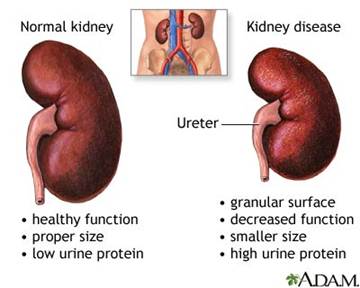
The Diabetes Control and Complications Trial was the first large randomized trial in which intensive glycemic control in adolescents and young adults with type 1 diabetes was examined. Six-year results were published in 1993 where intensively treated patients (mean glycosylated haemoglobin [HbA1c] level, 7.3%) exhibited slower progression of retinopathy and albuminuria than conventionally treated patients (mean HbA1c, 9.1%). Patients now have been followed for 16 more years in an observational, nonrandomized phase, during which mean HbA1c levels have been similar in the two groups (about 8%).

Researchers report long-term (22-year) renal outcomes in 1222 of the original 1441 participants. Patients in the original intensively treated group, compared with those in the conventionally treated group, were significantly less likely to have urinary albumin excretion >30 mg/24 hours (3% vs. 7%) and glomerular filtration rates (GFR) <60 mL/minute/1.73 m2 (roughly 4% vs. 8%). End-stage renal disease has occurred in too few patients to allow meaningful statistical comparison.
 In this study, favourable effects on renal function have accrued well beyond the 6-year randomized comparison between intensive and conventional glycemic control — a so-called "metabolic memory" effect.
In this study, favourable effects on renal function have accrued well beyond the 6-year randomized comparison between intensive and conventional glycemic control — a so-called "metabolic memory" effect.

